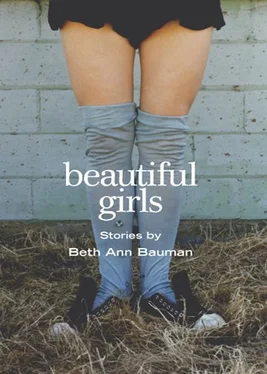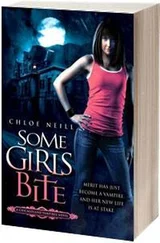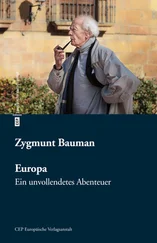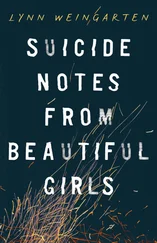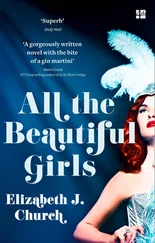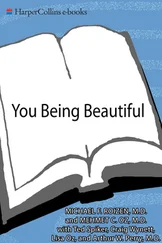“Oh, no thank you,” she said.
“Think about it.” He smiled and rested the plate on her washer.
“Really, no thanks.” A fly buzzed near the hot dog and she shooed it away. “I just ate,” she lied.
He shrugged and turned. “I like you,” she said, intending to infer a “but,” though the sentence ended cleanly, simply.
“Good.” Sam climbed the fence into his yard. “I’m over here,” he said, looking back at her.
Safeway is only two miles away, but Georgeann speeds along River Road with the windows wide open, and when she pulls into the parking lot she’s sweaty and windblown. It takes her a moment to realize something is wrong with Safeway. The grocery store is completely dark. The automatic doors are propped open with shopping carts, and behind the darkened storefront the cashiers use flashlights to ring up customers, who lurch through the open doors and stare down into their bags, checking out their purchases. Yes, they seem to be thinking, I did get the Salisbury steak dinner and these oranges aren’t half-bad. The deli woman, a chunky woman with a Safeway smock and a bright beehive hairdo, stands on the curb smoking a cigarette. Georgeann drives up and lowers the passenger window.
“Transformer blew, hon,” the deli woman says.
“Can I shop?”
“Got a flashlight?”
“I think so.”
The beehive shrugs and places her hands on her wide hips. “Just be careful back by dairy. The floor is kind of wet and you could slip and land on your ass.”
Georgeann nods and swings the car into a parking space. In the trunk she finds a rusted, working flashlight. She then joins the deli woman on the curb and peers into the store, catching a glimpse of herself in the chrome of the doors; she sees her Levi’s and a sleeveless denim shirt, and her silvery shoulder-length hair tucked behind her ears. Flushed and dreamy-looking, she looks like a person who possesses a secret.
“Weird, huh?” beehive says, lighting another cigarette and offering the pack to Georgeann. It has been nearly thirty years since Georgeann has had a cigarette, but on impulse she accepts and gets lightheaded from the first drag. She takes another drag and feels the churn and sink of her bowels.
“Go on, it’ll be an adventure.” The beehive touches her arm; for such a stout woman her touch is delicate. The store looks inviting, cavernous. Georgeann nods and unhooks a shopping cart from the line-up.
Inside the store it is hushed and calm, except for the chug of a generator next to a checkstand. The air heavy on Georgeann’s skin, and it no longer feels like a late afternoon. The cash registers make small dings and trills. Georgeann slowly pushes past the manager’s specials, her flashlight illuminating piñatas—a big-mouthed fish, a mariachi, a shaggy sun and the Swiss Miss girl, who winks at Georgeann. Georgeann flashes her light in the doll’s face, and the happy, braided head stares blandly back at her. She stands still and lets her eyes adjust to the low light.
In produce, water drips from the sprinklers onto the heads of lettuce and sprigs of parsley. The vegetables still look alert, almost hopeful under the beam of light. A skinny female shopper sticks a pineapple into her backpack, and Georgeann hears the zip of a zipper as the woman hurries past her with wide eyes. Georgeann, too, feels inspired to loot a little something, and she drops a ripe avocado into her purse.
“Tomatoes, corn-on-the-cob, honeydew,” she says, thinking about what she needs. She is now alone among the fruits and vegetables. The arrangements seem just right under her yellow light, tomatoes next to assorted lettuces next to cucumbers next to peppers, all cousins together. She holds an eggplant, feeling its hollow bulk and wondering if she has ever really considered an eggplant—its purpleness, its prehistoric shape. She clicks off her light and stands holding the eggplant, feeling pleasantly immobile. I love , she thinks slowly, the words filling her head with the heaviness of sand…but what?
Georgeann tosses everything into her cart, loose and free—the perfect honeydew, several ears of corn, three rugged Idaho potatoes and a snarly turnip. She gazes into the cart, realizing this is all too much, but she can’t resist tossing in two tomatoes, a peach, a plum, a nectarine, half a watermelon. The romaine smells green, a deep earthy green. She bites into an expensive yellow bell pepper, spitting a seed from the side of her mouth. The pepper tastes sweet and cool. Here in the dark she allows herself to wonder what Sam is doing. Sam’s skin is bronzed and lined like the dry stream beds. He’s a cabinetmaker and one-quarter Cherokee. When his dinky clothesline is full he hangs his wet laundry in the pomegranate tree. Something slithers across the loose carrots. Lizards everywhere, she thinks.
When her son Aaron was home for spring break, he and Georgeann had sat on the front stoop one night drinking margaritas. Aaron, newly in love with a freshman from Tennessee, had whispered, “Go for it, Mom,” as Sam Bailey and his two beagles climbed into the pickup. Sam was tall and broad with dirty blond hair hanging into one eye. He had moved into the adobe next to hers eight weeks before, around the time the prickly pear and ocotillo went into bloom. Since then Georgeann had watched him come and go so often she had decided things about him—that he was easy to be with and spirited in a low-key way, that he was a man of his word though sulky when hurt.
Slightly tipsy, Georgeann lifted her chin as she stared at her neighbor, pretending to have noticed him for the first time. “Hell, I don’t need my life turned upside down.”
“Yeah?” Aaron said. “And what’s so cool about right-side up?” Georgeann smiled and cupped Aaron’s knee, such a large knee. He’d become a good man, she knew. Sam Bailey waved to them as he backed into the street, his beagles looking expectantly over the dash.
Georgeann moves slowly out of produce, and the pleasing stillness of fruits and vegetables, to Aisle 10: cake mixes, puddings and crusts. Not now, she thinks, leaving her cart and rounding the bend to the bread aisle.
The store has an unusual hum today, a hum like a pulse that matches her own slow, curious heartbeat. She seems to be the only human among the bread. For a moment she feels woozy, and she squeezes a loaf of sourdough, feeling the give of soft bread. She buries her nose in the bag and sniffs the comfort of dough.
Alone in the dark with her rusted flashlight and surrounded by assorted loaves, Georgeann becomes aware of her body—its age and how long she has lived in it, the feel of blood moving through veins and the steady pump of the heart. She knows that she’s going to die one day, just give out, no longer breathe and think thoughts, no longer see through these myopic eyes. She’s lived in this body for nearly half a century; it is hers and hers alone. It is what she possesses.
Sam was her second lover. In the foothills under a quarter moon Georgeann had sat with him on an air mattress in the back of his pickup, sipping beer and scooping his fiery chili from a thermos. “See the Little Dipper?” he asked, leaning close and pointing into the night sky. His hand brushed her leg, and she stirred. The sky was alive with scattered stars, but she couldn’t see the Little Dipper. Sam kneeled behind her and lifted her arm. “Close your left eye,” he said. With her right eye Georgeann watched him trace the small, appealing ladle with their fingertips. She licked her spicy lips, figuring him to be mid-forties, maybe a little younger than she. A coyote bolted into the road and she thought, if it turns and looks my way, I’ll sleep with him. The coyote, quickly changing direction, turned its head and regarded them with bright, translucent eyes before crouching low and slinking away into the hills.
Читать дальше
